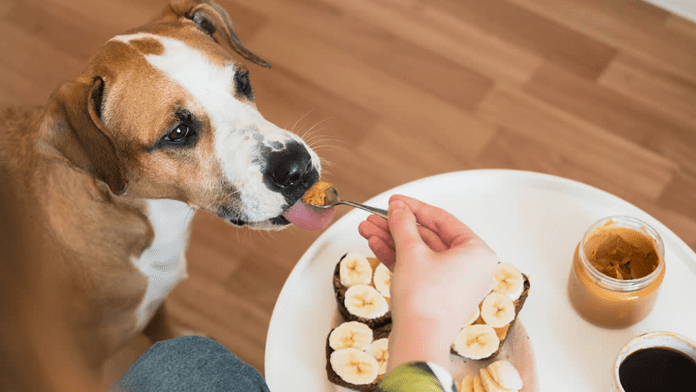Peanut butter is a beloved treat for many humans, and it has also become a popular snack for our furry companions, particularly dogs. The delightful taste and creamy texture of peanut butter make it an enticing reward during training or simply as a special treat. However, recent concerns have arisen regarding the potential dangers of feeding peanut butter to our four-legged friends. In this article, we will explore the truth behind these claims by consulting experts and delving into the scientific evidence.
The Love for Peanut Butter:
Dogs, in particular, have earned a reputation for their affinity for peanut butter. The internet is replete with adorable videos of dogs enthusiastically licking peanut butter off spoons or attempting to lick it from the roofs of their mouths. Its high protein content and rich flavor make it a desirable addition to their diets, but is it safe for them?
Xylitol: A Hidden Danger
One of the primary reasons for concern is the presence of xylitol, a sugar substitute, in certain peanut butter brands. Xylitol is safe for human consumption and has gained popularity as a sugar alternative due to its low-calorie content and dental benefits. However, it can be extremely toxic to dogs.
According to veterinarians, even small amounts of xylitol can lead to a rapid release of insulin in dogs, causing a dangerous drop in blood sugar levels, a condition known as hypoglycemia. In severe cases, xylitol ingestion can lead to liver failure and even death. As such, it is crucial to read the labels of peanut butter jars carefully and avoid any products that contain xylitol.
Nutritional Considerations:
Beyond xylitol, the nutritional aspect of peanut butter for dogs warrants scrutiny. While peanut butter is a good source of healthy fats and protein, it is also high in calories. Regularly feeding large amounts of peanut butter to dogs, especially smaller breeds or overweight dogs, can lead to obesity and associated health issues such as joint problems and heart disease.
Moreover, some peanut butter brands contain added sugar, salt, and unhealthy hydrogenated oils, which can be harmful to dogs. The consumption of these additives can contribute to obesity and other health concerns, just as it can in humans.
Allergies in Dogs:
Allergies to peanuts and peanut butter are another concern when it comes to canine consumption. Dogs, like humans, can develop allergies to certain foods. Some common symptoms of food allergies in dogs include skin irritation, itching, gastrointestinal issues, and ear infections.
If your dog has never had peanut butter before, it’s essential to start with a small amount and carefully observe their reaction. If any adverse symptoms occur, discontinue the use of peanut butter and consult with a veterinarian to identify the cause and appropriate treatment.
Feeding Peanut Butter Responsibly:
While there are potential risks associated with peanut butter consumption in dogs, it can still be given as an occasional treat when done responsibly. Here are some guidelines to ensure safe peanut butter enjoyment for your furry friend:
1. Check the ingredients: Always read the label and avoid peanut butter products that contain xylitol or excessive amounts of sugar, salt, and unhealthy fats.
2. Moderation is key: Peanut butter should be a rare treat, not a regular part of your dog’s diet. Be mindful of the high-calorie content and potential weight gain.
3. Introduce gradually: If your dog has never had peanut butter before, introduce it in small quantities and monitor their reaction for any signs of allergies or digestive issues.
4. Homemade peanut butter: Consider making homemade peanut butter for your dog, using only natural and dog-friendly ingredients. This way, you have full control over what goes into the treat.
Final Thoughts:
Peanut butter can be both a delightful and potentially harmful treat for your furry friend. The presence of xylitol in certain brands poses a significant risk to dogs, making it crucial to read labels diligently. Additionally, the high-calorie content and potential for additives raise concerns over excessive consumption, especially in overweight or smaller breeds. It is essential to feed peanut butter to dogs responsibly, in moderation, and preferably as a homemade treat with safe ingredients. As with any dietary changes, it is always best to consult with your veterinarian to ensure your dog’s health and well-being are safeguarded.





